 My grandmother just turned 98 years old. 98! She is amazing, still remembering intricate details about her life. She can still converse on any topic from the state of education to how many times Lance Armstrong has won the Tour de France. She’s also totally up on the whole gluten-free thing, and recently she told me a memory she had from when she was a little girl.
My grandmother just turned 98 years old. 98! She is amazing, still remembering intricate details about her life. She can still converse on any topic from the state of education to how many times Lance Armstrong has won the Tour de France. She’s also totally up on the whole gluten-free thing, and recently she told me a memory she had from when she was a little girl.
She was in the kitchen where her grandmother and her grandmother’s friends were gathered to bake and talk (my grandmother was raised by her Danish grandparents in South Dakota after her own parents died in the flu epidemic of 1918 when she was 6 years old — what that generation went through is incomprehensible). As they stood around chatting, my grandmother heard her grandmother say, “I like this new flour — it’s got more gluten in it.” Aha! Perhaps there is a history lesson here about why wheat is making people sick! (says the former history teacher)
People often ask me, “Why does it seem that suddenly everyone is intolerant to gluten?” After some research, I have concluded that the phenomenon of celiac disease and gluten intolerance has, in a way, come about rather suddenly. Why? Because gluten is far more prevalent in our society today than just 100 years ago (but a blip on the timeline of human existence). As the consumption of gluten has increased, the problems associated with gluten have too.
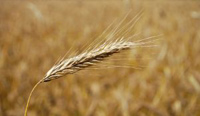 Wheat today is different than it was 100 years ago. It’s got more gluten in it! Until the 1870s, almost all U.S. wheat production consisted of “soft wheat” varieties. A “hard spring wheat” variety (originally from Central Europe) with a higher protein content (aka gluten) was introduced in the U.S. in the mid-1800s. The flour made from the higher gluten wheat resulted in fluffier bread and flakier baked goods — this was amazing stuff!
Wheat today is different than it was 100 years ago. It’s got more gluten in it! Until the 1870s, almost all U.S. wheat production consisted of “soft wheat” varieties. A “hard spring wheat” variety (originally from Central Europe) with a higher protein content (aka gluten) was introduced in the U.S. in the mid-1800s. The flour made from the higher gluten wheat resulted in fluffier bread and flakier baked goods — this was amazing stuff!
The demand for the new flour grew, but it wasn’t so easy to get at first. Although some early types of wheat may have been grown as far back as 9000 B.C., people didn’t each much of it because it was difficult to eat in its raw form, and even when they figured out how to crack it open, to grind it, to sift it and to cook with it, these processes were laborious because they had only primitive tools. Whole grains also went rancid rather quickly because of the high oil content in the bran.
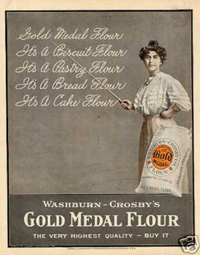 It was eventually discovered that milling the grains (stripping away the germ and the bran) made it so the grains could be kept for longer and also produced a soft, unadulterated white flour. By the early 1800s, many mills had equipment so that they could produce this refined flour. Demand for white flour grew as it became the desirable baking ingredient. Because it was more expensive than brown flour, it also became a status symbol.
It was eventually discovered that milling the grains (stripping away the germ and the bran) made it so the grains could be kept for longer and also produced a soft, unadulterated white flour. By the early 1800s, many mills had equipment so that they could produce this refined flour. Demand for white flour grew as it became the desirable baking ingredient. Because it was more expensive than brown flour, it also became a status symbol.
It wasn’t until the late 19th century that wheat production and consumption grew dramatically. One reason, as mentioned before, was the use of the new, hardier strains of wheat. (Today, wheat can be grown every month of the year somewhere in the world.) Also at this time, great advancements were made in the technology used to grow, harvest, mill and transport wheat. Inventions such as the reaper, the steel plow, and high speed steel roller mills, helped produce huge quantities of finer, whiter flour. Railroads provided better transport of the flour, making it available to more people, and better ovens allowed them to bake with it even more. With all of these advances, the masses had access to the refined wheat flour that was once a luxury of the wealthy.
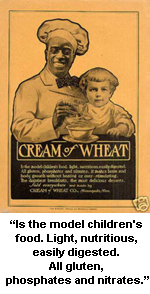 They also found new ways to eat wheat. Though eating a big bowl of cereal for breakfast seems the norm today, it was only in the late 1890’s that breakfast cereal was invented as a health food to help people with digestive problems! Kellogg and Post were among the first to come up with processed cereals in the form of flakes, shredded wheat and Grape Nuts. It was around this time that Quaker introduced oatmeal and Cream of Wheat was born. The popularity of cereal continued to rise throughout the decades — the cereal of today is not quite the health food it was once thought to be!
They also found new ways to eat wheat. Though eating a big bowl of cereal for breakfast seems the norm today, it was only in the late 1890’s that breakfast cereal was invented as a health food to help people with digestive problems! Kellogg and Post were among the first to come up with processed cereals in the form of flakes, shredded wheat and Grape Nuts. It was around this time that Quaker introduced oatmeal and Cream of Wheat was born. The popularity of cereal continued to rise throughout the decades — the cereal of today is not quite the health food it was once thought to be!
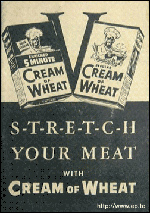 Though wheat consumption slowed a little bit from 1920 through the Great Depression and World War II, people were encouraged to find alternatives for meat and dairy due to war rationing. Thus, Kraft macaroni and cheese dinner, introduced in 1937, gained popularity during wartime and an entire pamphlet of recipes using Cream of Wheat instead of meat was published, with the slogan “Stretch Your Meat With Cream of Wheat.” The rise and fall in wheat consumption during World War II in five different countries correlated to the increase and decline in the number of schizophrenia patients admitted to hospitals in those countries, according to a 1966 study.
Though wheat consumption slowed a little bit from 1920 through the Great Depression and World War II, people were encouraged to find alternatives for meat and dairy due to war rationing. Thus, Kraft macaroni and cheese dinner, introduced in 1937, gained popularity during wartime and an entire pamphlet of recipes using Cream of Wheat instead of meat was published, with the slogan “Stretch Your Meat With Cream of Wheat.” The rise and fall in wheat consumption during World War II in five different countries correlated to the increase and decline in the number of schizophrenia patients admitted to hospitals in those countries, according to a 1966 study.
By the time the 1960s and 1970s rolled around, wheat consumption began to rise again. People became concerned with heart disease and cholesterol and whole wheat was viewed as a healthy alternative to combat these health problems. Wheat consumption in the U.S. saw another great increase with the huge rise in the fast food industry in the 70s and 80s. People on the go could now pick up sandwiches, hamburgers, chicken nuggets, pizza, and bagels just about anywhere.
Today, wheat is the single most cultivated crop worldwide. Most people in the United States eat wheat at almost every single meal, every single day, and for snacks and dessert too. Bakers are adding in “vital wheat gluten” or high gluten flour to make fluffier loaves of bread. Vegetarian and vegan meat substitutes are made from extracted gluten. Wheat is everywhere and then some! It’s no wonder we are not tolerating this food that has “suddenly” become our dominant food source.
“The body is not built wrongly, but is being used wrongly” proposed T.L. Cleave, author of a 1974 book called The Saccharine Disease, which addressed health conditions that he believed to be caused by sugar and white flour. Rather than viewing people who are unable to tolerate gluten as defective, we need to recognize that it is the change in our environment — the increase in wheat consumption — that has led to our ill health. My grandmother’s memory serves as a reminder of these changes that have occurred in just a short time.
Thank you, Grandma, for inspiring this post. Here’s to 99!





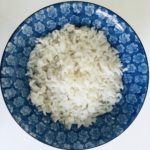

Kristen says
Very interesting information. Thank you for sharing it. My great-grandmother lived to 97 — I hope that I make it that long, too!
Shirley @ gfe--gluten free easily says
Awesome post, Alison! Happy birthday to your grandmother! I did know that wheat had been modified to have more gluten for those fluffier, higher riser breads and to produce more of them, too. I often tell folks that the wheat of today is not the wheat of Biblical times. Ron Hoggan mentions in Dangerous Grains how cancer didn’t become an issues until the early 1900s with industrialization and loaves of bread, etc. He also says that man has only been eating grains for a relatively few thousands of year compared to previous history not eating grains. No, we are not defective and there are far more of us (celiac and non-celiac gluten “affected”) that folks know or want to believe. Thanks for sharing, Alison!
Shirley
alison says
Thanks Shirley,
I have read Ron Hoggan’s work of course, and I wanted to focus on our very recent history because of the drastic changes I mentioned. I have not seen this perspective written anywhere, and I think people really need to look around at the unbelievable prevalence of wheat in our food supply. If everyone interviewed their grandmothers and great grandmothers, they would find an entirely different way of eating. There may have been bread on the table, but it wasn’t also all over the dinner plate, in bags of snacks, and served as giant breakfast entrees! Thanks for the comment Shirley!
Celiacs in the House says
Oh, do I remember the days before the kids and I found about our celiac disease. I was the stereotypical crunchy granola Earth Mother grinding wheat berries to make my own flour and making whole wheat bread and pizza dough and even adding ‘vital wheat gluten’ to get a lighter loaf. That combined with all the whole wheat pasta, couscous etc and no wonder the three of us were so sick.
Great post with all the food history and family memories.
alison says
Hey Celiacs in the House (aka Crunchy Earth Mother :))
I do think that there has been so much information (or a campaign?) about whole wheat being ultra-healthy. Healthier perhaps than refined white flour, but is it healthy overall? And in these quantities? Thanks for sharing.
Dr. Bill says
My personal feeling is wheat is not good for us. Ultimately, is anything good for us that needs processing to be “tolerated”. We dont have 4? stomachs like cows (sorry not a vet). I believe in evolution and nature; if we cant eat something in its natural unadulterated form (short of a bit of cooking ie fire) it probably wasnt meant to be eaten by our species.
Dr. Bill says
I tell patients, we cant eat bark, but if you ground it up into a fine dust and mixed it with other things, it may be semi digestible, but not likely good for us.
alison says
Dr. Bill,
Good point about the bark! As I was doing my research I learned that in the early days of commercial milling, the dishonest millers would actually steal some of the flour that was brought in and then cut the flour with sawdust or even crushed bone!
Alexandra Graham says
Loved the very interesting article, Alison!
Sandy says
A very interesting article. But it is not only food that we have to be careful of. What a lot of people don’t recognize is that wheat can be found in just about everything in the frozen food case, in medications, cosmetics and shampoo. And also in places we never suspect.
We need to have that government law passed to only allow 20 ppm (which I think is still too high)or less. It was supposed to be passed 2 years ago.
Pat says
Great article! The way I learned to eat…and continued through many adult years before going gluten-free…certainly included, as you say, wheat somewhere in every meal, and lots of snacks between. I’ve often wondered how different life was when a cook had to grow, thresh, grind and bake all her own bread. I know I would eat a lot less of it in that case!
alison says
Yes, Pat, our food is so removed from the original source… baking bread used to be an all-day affair. Now you can just pick it up anywhere and everywhere!
Janine says
This was great! We can learn so much from history. Even though the intentions may all have been good, there are consequences to our actions. It seems so hard to know what IS good for us to eat!
Sharon says
Great article! You certainly do your homework!
I’ve never thought about wheat consumption historically. No doubt this explains the huge increase in prevalence of celiac disease, gluten intolerance, and food allergies in general.
Great article!
Alta says
Great article and I completely agree! Man has been around for thousands of years, but for most of that time, are whole, natural foods similar to those that hunter/gatherer societies eat – veggies, meat, fruits, nuts, seeds. We’ve only cultivated grains for a short time, and then eaten these highly refined grains as the staple of our diet, like you said, for 100 years. Not enough time for our digestive systems to evolve!
Marlene says
I love your article. I wish it could be read by more people.
I knew wheat is fairly new to the human diet but didn’t know about the hard wheat variety. It all makes sense about it not being a natural whole food. My son has been helped by being gluten free so much and your website is my favorite to to for recipes and information. Thanks Alison and thank goodness for our elders and their memories!
Kim Bowers says
Thanks very much for this article! I am passing it along to several people who say to me, “But people have been eating wheat for thousands of years…” I too used to grind my own wheat, thinking I was improving my health! Now I know I am gluten intolerant (non -celiac) and I so grateful to finally feel healthy. I am wondering if some of us would be able to eat the “original” wheat they had long ago, without the added gluten, etc.. Wishful thinking, I guess.
Linda says
This was a fascinating article to me. It makes me feel better to not think of myself as defective, as seems to be the norm. I do feel like the canary in the mine shaft, though! Thanks so much for all that you do!
Alison says
Linda,
I read somewhere that there was a study that determined that everyone would develop celiac at some point in their lives, but many die before that (or else die of complications from gluten and we never know about it).
Linda says
Alison,
That is astounding! As amazing as it is, though, with all the stomach/intestinal trouble, etc., that people are turning up with, it makes a lot of sense. I know when any of my friends or acqaintances tell me about certain symptoms they are having, I immediately suggest to them that they may want to get tested for Celiac, and if it comes back negative to try not ingesting gluten for a while and see if they feel any better. They seem to think I am crazy, though, and don’t give much heed. Eliminating gluten is too hard!!! Ah, well. . .
Thanks for the reply and the insight!
Carol says
Hi Alison ~ Great post! I also firmly believe that many of the problems of food allergies can be directly related to GMO foods. For instance, perhaps there is a higher level of gluten in most foods, however, there is also another more silent & yet I think more effective enemy ~ & that is GMO corn, cornstarches, high fructose corn syrups & etc. These genetically modified corn products have been modified with an antibiotic gene to aid in the manner in which the seed can be propagated. For instance, Monsanto produces a product called round-up. They also produce what are called “round-up ready” corn seeds. These seeds will not propagate unless the ground has frist been treated with their round-up. A nice little scheme isn’t it? These seeds with the anti-biotic nature are then processed into every type of ready-to-eat foods you can think of. People consume large quantities of the foods, & suddenly not only are they becoming resistant to antibiotics ( imagine that!) but they are also becoming allergic to many many other foods, wheat being a major player. I have found that if I completely avoid any & all corn products, I can eat wheat products with very little side effects. Just one slip-up of consuming a corn-related product, however, can bring on a nasty bout of internal issues & allergy symptoms. I hope this information can help some of you ~
Alison says
Hi Carol,
Thanks for the info. Corn allergies are on the rise, and I agree with you that GMOs probably have something to do with it in addition to the fact that corn, like wheat and soy and dairy, is added to so many processed foods that our consumption of it has increased tremendously.
Elke says
Thank you, Alison, for the history. I have long wondered whether the prevalence of gluten in products from tea bags and ground pepper to prescription drugs has precipitated this epidemic of gluten intolerance. I did not realize that a transition had been made from soft to hard wheat. That increased gluten means increased protein makes sense. It makes the trend towards higher protein wheat alarming (I wish I could find the reference to the radio program I hear within the last few weeks, but Western Canadian researchers just developed a higher protein wheat).
Elke says
American cardiologist Dr. William Davis has written a book about the undesirable effect of wheat that may be of interest. I haven’t read it yet (believe it’s quite new), but here is a link to a CBC podcast with a short interview: http://www.cbc.ca/thecurrent/episode/2011/10/10/wheat-belly/
The book is entitled Wheat Bellies.
Alison says
Elke,
I have been meaning to read that book!
Hannah says
Hi Alison,
Great article, thanks for the research! Do you think there is a correlation between this most recent sudden rise in wheat allergies and the introduction of GMO wheat in the 1990s? I know that there have been wheat allergies before GMO, but it seems that a much higher proportion of people THESE days has a wheat allergy versus before the 90s when it was fairly uncommon.
Alison says
Hannah,
I think we as a society definitely need to look at GMOs as a contributor to food sensitivities.
Melanie says
Very interesting article. I agree we do eat too much wheat (and far too much meat too – sorry life long veggie), and it does seem to be in everything around us. However, as much as i totally disagree with G.M.O. foods and think they should be banned, i find it strange that no one has yet mentioned that everything we eat commercially is sprayed with toxic organo-phosphate chemicals. I have been a professional Horticulturist for nearly 40 years and seen just how much is used commercially. I became an organic gardener very early on in my career as i could not use these chemical cocktails on my beloved plants, let alone people! Just look up the history of D.D.T if you want to see the terrible effects of only one such substance on humanity and the world in general. You would not believe the chemicals that are sprayed on the food you eat, or the amount/regularity of dosage. We have no idea what this constant mixture and build up is doing to our systems, our environment or our evolution as a species of animal. I know what it does to plants and it is not good! I thankfully am not allergic to wheat, but know a lot of folks that are today. I often wondered why i am not, and have always put it down to the fact that i grown 90% of my own food and the other 10% i try to source as organically as possible, even my bread. I do however suffer from M.E. and most M.E. sufferers have serious stomach problems. These do seem to improve however when they eat organic foods. I am sure you all do as much as possible, but just wanted to mention it in case it helps. If you think what they spray on plants is bad chemically, you just do not want to know what they give to the poor short lived animals some of you eat!
Alison says
Thanks Melanie,
I do not really know anything about the chemicals sprayed on our foods, but I buy organic as much as I can because it’s got to be better than eating chemicals!
Amy says
Alison,
What a comprehensive story of wheat. I am delivering a talk to a group at one of our local synagogues and was really happy to use you as a resource. I will be passing on your site to everyone there. Thanks again. I hope your grandma got to see 100 🙂
Scott says
Most likely humans have been eating grains for numerous tens of thousands of years if not hundreds of thousands of years.
Homo habilis apparently started cooking around two million years ago, and which resulted in Homo erectus and Homo floresiensis which apparently evolved in part due to fire technology due to that fire softens foods and makes food more digestible in a positive sense for more nutrition, furthered technological development, and furthered social development.
Fire technology, and tool development have been major factors in our evolution as whole people, both physical development and mental/social development in one way or another, to varying, but substantial, degrees.
A Table in the Sun says
Very good history of wheat. One addition I’d like to add is that many of us have trouble processing folic acid, which is added to all enriched products in our country. I have a genetic flaw called MTHFR that means folic acid is like poison to me. I ate gluten my whole life, and only realized when I approached menopause that it was a problem. I’ve been gluten free for 8 years, but the damage in my gut has yet to be repaired. Thank you for being a gluten free advocate.
Amanda says
Thank you for the story, please read “Wheat Belly” by Dr. W.Davis, and everything is so clear after reading that book.
Wayne C says
Thanks so much for your information and history on gluten
and its health problems. I too am an advocate of eating
healthy and have read some articles about gluten and its
history. The article said that wheat has a natural pesticide
in it but at some point in time it was re-formulated to increase this amount of the pesticide and that natural pesticide is gluten. The article about the gluten also said that they (doctors) had never tested humans blood that did not have residues of pesticide in them. Have you read anything on this subject yet as I try to find at least three sources of information on a subject before I am assured that it is possibly true.
Wayne C State, WA
Elke says
Dear Scott, I have heard the argument before that people have eaten grain for a very long time, and many use it to imply that it should therefore be fine for us to consume, but two questions come to mind: 1) which grains did we actually eat (I understand that sorghum is one of the older ones), and 2) what is the effect of our frequent modifications of various grains? For those interested in the history and effects of wheat, Wheat Belly is a good book. Elke
PS: Amanda, our local support group, Celiacs on Track, has created a free 102 page PDF providing a range of information about Celiac. We are happy to share it, and I could send you/others a copy. Of course, it does not constitute medical advice.
Scott says
Just to give a heads up:
Refined or isolated(processed) starches appear to have been worldwide standards going back thousands of years, not just a hundred years,… whether considering pre-columbian natives of the Americas,…. and natives of Asia, Australia, Papua New Guinea,…. and the rest probably. Whether from seeds, tubers, stems(such as with sago), and possibly other plant tissues.
The fact that first American Peoples developed corn(though only some of the peoples made use of corn/maize in the Americas) I figure indicates that the usefulness of grass seed as food, with processing, was already highly valued in Asia prior to their crossing the Bering straight, and such, in getting to the Americas. Cooked starches in the human diet, due to human fire technology, very likely goes back at least hundreds of thousands of years, and quite likely well over a million years. Processing is key to make starches edible for humans. Humans have evolved with and due in part to their processing technology.
Dr. Bill says
Scott, history or the ability to make things edible only proves people have figured out a way to SUBsist, it’s survival. We are trying to be healthy. Grains and starches are cheap and provide some baseline calories on which one can semi exist (though not well without protein ie kwashiorkor.) Traditionally the wealthy have protein, the poor make due with starch, that is why most “cultural” staples which are consumed by the masses (the culture) are starches. Rice, Tortillas, Breads, noodles, or worse fried dough covering something.
Scott says
I understand the point you mention here fully,…. but, the longterm use of cooked starches(thousands, tens of thousands, hundreds of thousands, plus) also has an evolutionary factor which makes for some use(optimally variable per person) of cooked suitably/appropriately processed starches being an optimum part of the human diet for best health. Our bodies reveal,… get in tune with desire and response/effect, – prudently speaking. I’m not talking mere subsistence, I’m talking thriving. Starches are an optimal component, variably,.. and not necessarily ‘every day’,… but could be for some people.
Gohans Ghost says
I like your theory, how its the evolution of more gluten in our diets,however I beg you to keep an open mind ! We as americans are being slowly poisoned to death and stupified by the evil corp. putting all this poison in our food, for their financial gains ! Glad they can sleep at night eating real food,while the rest of us are left with no choice but to eat what is available and affordable until it finally kills us ! Gm poisoned !
Michelle says
Thank you for this informative post. I’ve finally given in to finally going gluten-free in a last ditch effort to feel good. I have psoriasis and psoriatic arthritis, systemic inflammation, irritable bowel and just plain old don’t feel good despite my very healthy whole foods diet. The culprit has to be gluten.
Scott says
In reference to my two comments above in support of starches and grains for food,… I rarely eat a wheat product,… most of the starch I eat, which is occasional, is corn tortillas and wholegrain rice(typically a blend of different varieties, and, cooked with a rounded teaspoon of non-aluminum baking powder, to 1.5 cups rice, into 3 cups water). I rarely eat wheat, but on rare occasion a simple whole grain bread, which includes wheat, or a white flower product, such as pizza, hit’s the spot. Adequate processing of grains is another part of the deal for making them most suitable for human benefit.
On that point, humans, by biological nature, variably, have the necessity to pre-process foods from a given environment/habitat, in order to subsist and thrive with the products from a given environment/habitat. We’re not wild monkeys/apes. Hunter-gatherers do pre-processing of some foodstuffs, as they’ve done for millenia/eons, apparently. And, cooking(and sometimes leaching, isolating/refining, or fermenting) is one of the methods of pre-processing in order to make many foods, including some plant foods, edible/useable, and/or most useful, for human nutritional benefit, due to effectively greatly diminishing naturally occurring anti-nutrients within the ‘raw’ foodstuff.
Kathy says
Thanks for all the info. As I understand from reading about the change in the wheat we eat(the book Wheat Belly) that the wheat we eat today has been genetically changed for the grower but no thought has been given to the effect of this change on the human body. That is one of the reasons, and I think the most important, that millions of people have a wheat problem. Some of them haven’t figured it out yet and many who have are not willing to give up their bread, bagels, muffins, etc. I’m eating gluten free and the more I read of labels, the more there is to eliminate from my diet. It seems to me that natural food is the answer. I buy gluten free brown rice bread for an occasional treat and I am eating more at home and more natural food. I’m thinking of buying a bread machine. I also buy GF pasta, pancake mix and cereal.
K says
I agree with others about GMO in the food supply causing gluten (and other health) problems. This stuff is poison. Glad to see that GMO awareness is growing. Without our consent this poison was put into our foods and I for one no longer support any company that uses that stuff.
There has never been and there never will be a ‘good reason’ to alter the dna of food.
Mae says
Very insightful post on the history of wheat in America! I also wanted to say… K, Carol Hannah have hit the bulls eye! Genetically Modified foods are the real cause to the many illnesses that are fast on the rise including food allergies and sadly obesity.
Also keep in mind other fellow readers/commenters that natural is not really natural anymore – as a lot of people think the answer is. A google search on this will quickly reveal how there are currently a plethora of lawsuits in process; many products that are labeled ‘natural’.. sad to say [and to my recent horrific realization] are in fact GMO!
Worse yet at least 90% of all products on the shelf in stores today contain GMOs. GM foods are anything but natural as the creators admit to and hence the litigation currently underway. And if it were just corn and wheat that would bad enough. However the list of GM foods keeps getting longer. As we speak these are the top items that have been modified: Canola; Chicory, Red Hearted(Radicchio); Corn; Cotton; Papaya; Potato; Soybean; Squash; Tomato; Peas; Wheat; Rice; Zucchini and Coffee Bean. Keep in mind that dairy and meat products are included as they are fed GM food.
There is a Non-GMO Shopping Guide — You can google it to take to the store with you.
Tony says
I was a 61 year old male of good health when I was diagnosed a Celiac. It was November 2011. I had been retired for some years.
In June of my 61st year I started a rigorous training schedule three times a week, to keep fit. I have been doing it off and on for quite a few years. It includes a workout on various machines for 75 minutes. The level of energy is equal to a power walk for 75 Minutes. After a few weeks I noticed when I got out of bed too quickly in the morning I would get a bit dizzy. Also if I was bending down then standing quickly, getting out of my lazy boy too fast would also do it. I put up with it for a while and then started to lose weight. I thought my exercise was working fine. The weight kept going down from 82 kgs to 69kgs. My wife made an appointment to see the doctor about the dizziness as the weight lose wasn’t a great concern at that time.
My doctor had been trying to get me to have a colonoscopy for some time as my Mother had bowel cancer in her 70’s ( but is fine now at 86) I had been resisting because I had to pay the cost and there was no reason to, until now. I stopped doing my workouts in September and in October I was booked in for the procedure. During the blood test for the Colonoscopy the Surgeon noticed My Wheat count ( or what they check for ) was high and suggested I may be Gluten Intolerant and wanted me to have a Gastroscopy. He couldn’t do it all at that time so I had it done one Month later in November.
It was confirmed I was a celiac. I knew all about a celiac as my wife is one. I had no other symptoms but the losing weight and the dizziness. Since my wife was diagnosed and lived on a strict Gluten free diet, she can’t have any Gluten whatsoever as she gets violently sick with the smallest amount. I can eat as much as I like without any effect. After a month on a Gluten Free diet I started putting on weight, my dizziness was gone. Within 6 months I was back up to 82 kgs. After 12 months I am back working out 7 days a week, instead of 3, to push the energy levels. I will scale back eventually.
I went 12 months on a Gluten free diet and have started eating a bit of gluten to see what would happen. Nothing happened so over a period of time I upped the amount of gluten consumed to quite a bit, still no effect. I am mostly gluten free but on occasions, when socialising, I indulge in a few tasty dishes that used to make my mouth water, but resisted.
I used to eat food which had Gluten for breakfast, lunch and dinner. I also had a few beers every night before tea. I always had 3 or 4 pieces of bread with my dinner. A habit of my upbringing when bread was consumed with meals to full you up. I would have consumed so much Gluten in the course of a day I am wondering if my ageing digestive system just couldn’t process so much gluten. Once I brought a physical workout to the mix I couldn’t get enough nutrients to sustain my needs hence the dizziness and weight loss. I did notice my weight stabilised in the month I gave up exercise until my Colonoscopy. Friends said my skin looked a greyish colour and I looked like I was not long for this world. Of course they only told me that after I came right.
I have read that Gluten is hard on the digestive system and are wondering if Gluten in moderation would be okay. Also, if I had this problem at my age, a lot of people probably are the same but haven’t been diagnosed. I can’t believe the speed of recovery once a Gluten free diet was started.
Elke says
Dear Tony, please, please, please do not eat gluten if you are a diagnosed Celiac. No symptoms are not an indicator of no damage. If you would like a copy of my club’s Celiacs on Track Guide for Gluten Free living, which attempts to answer a whole range of questions about Celiac, feel free to e-mail us at Gluten Free in Grande Prairie: gfingp at yahoo.ca. It’s a free PDF with information, tips and recipes.
Scott says
Elke,
He’s following what his body is indicating by response, reasonably. The secret of optimum diet is knowing thyself, prudently. Our bodies give response indicators, even subtly, which one can notice if one is paying adequate attention to their health indicators; and realizing the poison is in the dose. He’s not going into anaphylactic shock, like some people do with peanuts, for example, or getting a rash, or getting a pain,… or something noticeable, apparently. Grass grains in the wheat ‘tribe'(kamut, spelt, oats, rye, barley, etc) go way back in the consumption history of people of European ancestry. Beware of absolutes. Moderation is key. How tolerable or good a food is for us, is a matter of frequency and volume, and how the body is able to process the substances which is variable depending on personal circumstances(not just a ‘diagnosis’),…. frequency and volume, and, the fitness of ones digestive system are the factors(still separate from a ‘diagnosis’). And if one doesn’t over eat, has an appropriate to them well balanced diet, one will generally have a fitter digestive system which is able to tolerate and process some possibly less than ideal items on occasion. The particular quality of the substance is also another consequential factor, so not necessarily are all gluten products going to have a negative effect,… there’s the type of gluten grain or wheat cultivar it came from,…. and, there’s the method of processing. Both are major factors.
Don’t be unnecessarily alarmist, which is what you’re doing.
Know.
By experience, genuinely,
Scott
Tony says
Thanks for your input Elke. I would rather you said go for it.
My wife was diagnosed as a celiac some years ago so we are a Gluten Free house to a degree. I have thought it was god’s cruel joke on me as what chance is it that we are both Celiac. I used to look at what she was eating and thinking thank goodness I don’t have to eat that food, and here we are. I think the disbelief of it all is why I am in denial. I am thinking of having another Gastroscopy at the end of next year to confirm the original diagnosis.
I put my story on here in the hope that someone else is in the same predicament as me. Everyone I have met that is a celiac can’t eat gluten without being sick or at least bad stomach cramps. They all had bad symptoms before they were diagnosed. The thing the Doctors were looking for with me was why I had a low Iron count, hence the dizziness. As they found out, the Gluten intolerance was stopping me getting the Iron I needed out of the food I was eating.
I do appreciate you taking the time to comment.
Tony says
Hi Scott, it is great to have another opinion. My wife thinks I should stop doing so much self-diagnosis and just accept it. She has to say that as it is easier for her if we both have to eat the same food.
If I had any other symptom before and now that other celiacs I have met have, I would accept it. If I don’t need to I am not going to miss out on Hamburgers and the like. Have you ever been to a funeral, as a celiac, when the food comes out. (That was rhetorical by the way)
Thanks for sticking up for me. I am in New Zealand and as this is an American site I assume most of the comments are from Americans.
Elke says
Dear Tony, I am sorry that I cannot be more encouraging, but I stick with my advice to rigorously avoid all gluten. This advice is based on reading scientific journal articles and books from more learned folks than myself, such as by Shelly Stuart. Scott clearly has other advice; as a biopsy-confirmed Celiac without prior symptoms, and still with little noticeable reaction to gluten, I would not risk my health on the experience — as much as I would love to eat whatever I like. This is even more so my sentiment now that non-compliance to a gluten free diet has been linked to a variety of other serious illnesses in Celiacs. On a positive note, there are lots of great things that we can eat, and I have had people who Can eat gluten ask me for a variety of things that I have cooked and baked (though I’m not an expert cook!). It is definitely not as convenient when we have to take food along sometimes, but I figure my long-term health is worth it.
Scott, out of curiosity, are you Celiac, or intolerant or do you opt to go partially gluten free for other reasons? If you are Celiac, have you had any follow up biopsies or absorption tests to confirm that eating some gluten has not affected you? Kind regards from snowy, Northern Canada. Elke
Alison says
Hi Tony,
I am in Elke’s camp here. How about this thought — your mother had bowel cancer… do you want to end up with some type of intestinal cancer, which had been directly linked to gluten consumption in celiacs? I do know a male friend who could eat gluten without a lot of intestinal symptoms but his wife encouraged him to get tested because of other problems he was having, like you. He tested positive for celiac. His father died in his 40s, when my friend was a young boy, of stomach cancer. That’s motivation enough for my friend to stay gluten-free.
Alison
Heidi says
Thanks for the post! Like many of us, I’ve tolerated wheat most of my life and have recently become sensitive to it. I suppose we could locate an ancient strand and begin growing and recirculating…or is it dead?
GABRIEL says
please can you inform me about the waste from wheat seed known as wheat offal. i need some INFORMATION ON IT.
joshua says
just curious – the high gluten hard wheat strain. came from europe – do they show a correspondic increase in gluten sensitivity? the late 19th and early 20t. century American ethnic background would have been predominantly western european so the effects should have been similar.
additionally look at eastern europe where the refined flour breads did not catch on and a tradition of whole graina nd rye breads flourished. (rye has gluten but its inhibited from developing the bread structure of wheat due to other chemustry in rye). does eastern europe show a similar increase in gluten issues?
if so how much of the increases can be attributed to awareness and ability to diagnose, etc.
joshua says
Ps I own a bakery that uses only whole, complete grain flours, from specific local farms
Veronica says
Alison, so happy to find your web site…awesome info… I have been sharing it on my face book and posting your web page. Thank you very much…..awesome article above… Thanks again,….;0)
Veronica says
Alice, have to say I disagree with a few things on your list..I do the paleo and many of the following would be a no..no:
*Buckwheat (also known as kasha – not to be confused with Kashi brand cereals, which are not GF)(not sure)
*Corn, including polenta (make sure flour hasn’t been added)
*Potatoes, including potato flour and potato starch (sweet potato…ok
Millet
Montina
Nut **flours**?
*Oats (if certified gluten-free)
*Quinoa
*Rice, including risotto
Sorghum
*Soy (soy is sooooooooooo Bad for women and especially if u have tyroid issues)
*Tapioca
Douglas N says
I believe balance is the key. Thank u 4 the info on hard n soft wheat. I will try that. I try to avoid too much corn. Non GMO wheat is a great source of protein if it is not over processed and over consumed. And remember, an apple a day really does keep the doctor away.
Deborah says
I started on this adventure to find out why my sister becomes violently ill when she eats white flour. I started at the beginning. Einkorn, spelt, farro are just a few types of grain that is referred to as the mother of wheat. There is very little gluten in these flours. The seeds have a thick hull which requires thrashing to release the seeds. There was no need for monsanto type intervention, bugs could not get through the hull. The flavor of these grains are amazing. I especially love the einkorn and spelt flour. Yum.
During the 1970’s in the GREEN REVOLUTION they switched from mother wheat to dwarf wheat. That is the MAJOR difference. Einkorn for example is a taller plant while the dwarf wheat is shorter. Then they process the hell out of the wheat which leaves you with white poison.
I literally have gone old school, a former big city woman. We now have a sweet family farm, with a Jersey, 2 goats, sheep for our milk, cheese and butter. In addition we have turkeys and chickens. Life is amazing and way more interesting. We just purchased 2 active hives for our raw honey needs. Scary but interesting.
I did buy some spelt and einkorn seeds, I plan on at least growing it. I will figure out the thrashing when the time come. I also have a nice mill.
Thanks for the info, it brought me closer to my quest for answers.
Peace.
William Rossetti says
Please read Grain Brain by Dr David Perlmutter. Here’s the lowdown on gluten, cholesterol, statins, sugar and other poisons being fed to people in the cause of making money.